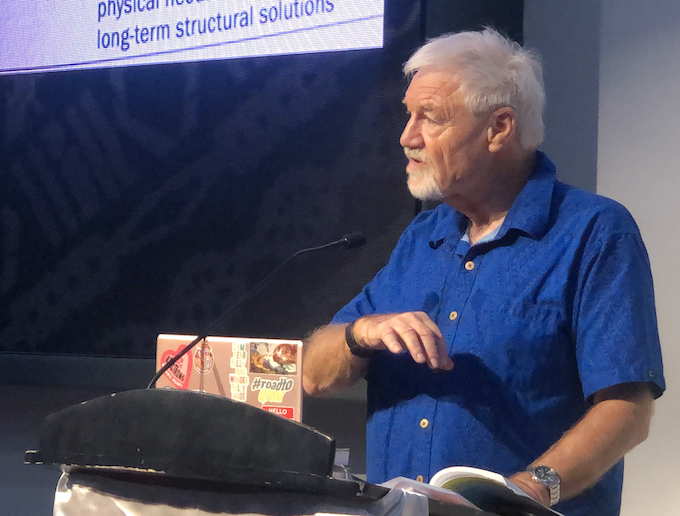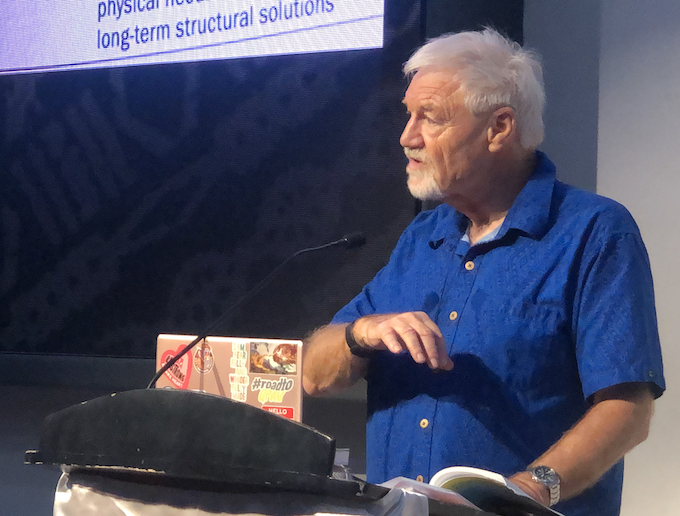

By Camille Abiel H. Torres, Charm Ryanne C. Magpali, Laurd Menhard Salen of The Varsitarian in Manila
A New Zealand media academic and freedom advocate has warned that shutting down the Philippines’ largest and most popular media network would be a move toward dictatorship.
Professor David Robie, director of the New Zealand-based Pacific Media Centre and journalism professor at Auckland University of Technology, said President Rodrigo Duterte’s displeasure toward ABS-CBN Corporation was not enough reason to deprive it of a franchise.
“There’s no justification in doing that [not renewing the franchise of ABS-CBN]. Doing that is moving towards dictatorship,” Dr Robie said in the recent annual memorial John Jefferson Siler lecture-forum at the University of Santo Tomas in Manila.
READ MORE: Ampatuan massacre justice aftermath with more fear of warlords, corruption
Duterte has vowed to block the renewal of ABS-CBN’s franchise, which is pending in Congress. The president claims ABS-CBN swindled him during the 2016 campaign when the Lopez-led television network did not air his political ad.
The ad was in response to a 30-second spot paid for by then opposition senator Antonio Trillanes IV, showing children reacting to the ex-Davao City mayor’s profanity-laden speeches.
– Partner –
“Your franchise will end next year. If you expect it to be renewed, I’m sorry. I will see to it that you’re out,” Duterte said in remarks at Malacañang Palace last month.
Congress has yet to act on the renewal of ABS-CBN’s 25-year broadcasting franchise, which will expire this March.
Journalists rallied yesterday for a “black Friday” protest in support of the ABS-CBN Corp. urging Congress to “repudiate” President Rodrigo Duterte’s “vindictive assault” on the channel and extend the media company’s franchise.
‘Open season’ against journalists
Dr Robie, who is also convenor of the Pacific Media Watch freedom project, talked about human rights and press freedom violations in the Indonesian-ruled region of West Papua, saying it was “open season” against journalists.
He also recalled the 2009 Ampatuan massacre on the southern Philippines island of Mindanao that killed 58 people, including 32 journalists, which marked its 10th anniversary on November 23.
“What you experience in the Philippines is replicated around the world,” Dr Robie said, blaming much of the increased global dangers for journalists on hostile anti-media rhetoric from leaders such as US President Donald Trump and President Duterte.
“We have many leaders around the world…who are basically, constantly attacking and denigrating the media,” he added.
Article by AsiaPacificReport.nz




